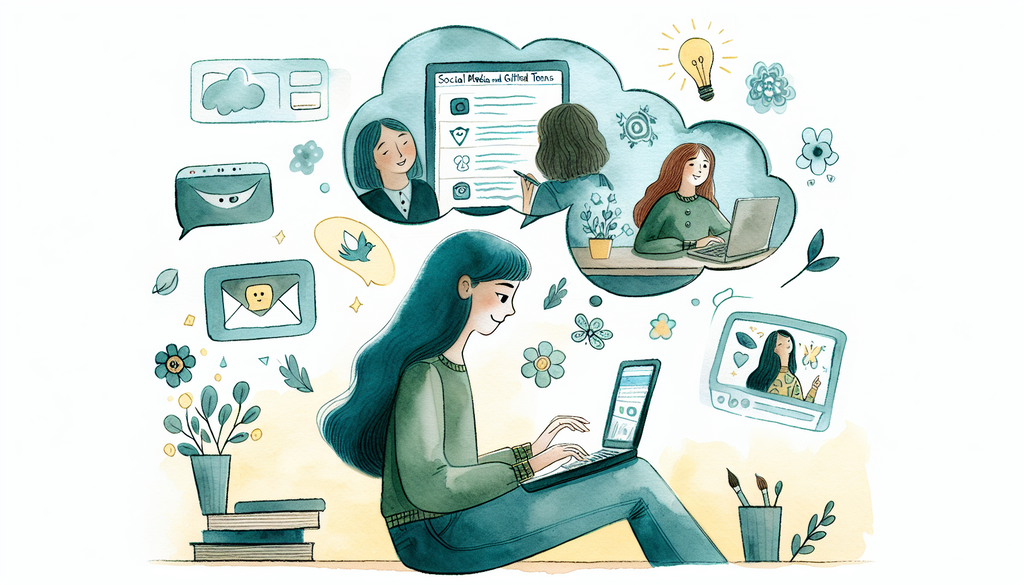Social Media and Gifted Teens: A Guide for Parents

As our children grow into teenagers, they often become more active in the digital realm, especially on social media platforms. While social media can serve as a great tool for gifted teenagers to communicate, express themselves creatively and vicariously experience various facets of life, it can also pose challenges and risks. Gifted kids often experience greater sensitivity, heightened intellectual curiosity and an advanced moral compass, which can sometimes translate into more intense or complex interactions with social media networks. Therefore, parents need to be armed with strategies to help guide and protect their gifted teenagers online.
Understanding Your Teenager’s Online World
Be proactive in learning about the social media platforms your teen uses. What type of content is shared, and what are the interactions like? Who can contact your teen, and what restrictions are available? Each platform will offer different features catering to various interests. For example, Instagram can be a hub for artists, while Twitter might appeal to your teen’s love for political debate. Understanding these dynamics will help you establish sensible guidelines around your teen’s social media use.
Open Communication
Start an open dialogue early with your teen regarding social media. Discuss potential risks and benefits, demonstrate responsible behavior and model healthy digital habits. Ask about their experiences and guide them through any challenges they might encounter. Ensure they are aware of their digital footprint and how this can impact their future academic and career opportunities.
Mental Health Implications
Social media has become a ubiquitous part of teenagers’ lives. It can be a source of positive reinforcement but also a catalyst for pressure, comparison, and cyberbullying. Gifted teens may be particularly susceptible due to their heightened sensitivity and propensity for overthinking. In our recent post, we covered this very issue by discussing Giftedness and Anxiety: Coping Mechanisms for Parents and Children. Many of those coping mechanisms may prove useful in tempering any anxieties related to social media use.
Setting Boundaries
The unlimited access to boundless information can lead to excessive use or even addiction, affecting sleep, mental health, and academic performance. Therefore, setting time limits for device usage, establishing tech-free zones, and promoting a balance between online and offline activities can be a beneficial practice.
Online Safety
Guide your teenager to maintain privacy and share responsibly. Use privacy controls on each platform to limit who can view their posts and interact with them. Teach your teen not to share personal or location information and to be cautious about interacting with strangers online.
Constructive Use of Social Media
Social media is a tool, and like any tool, its meaning and value depend on how it’s used. Help your gifted teen leverage their online presence for learning and growth. They could follow accounts and join groups that align with their passions and goals. In the post Discovering Passions: Alternative Pathways in Gifted Education we discuss how such digital communities could champion the promotion of intellectual growth.
Parenting in the digital age often feels like navigating through unchartered waters. While social media brings along its own concerns, it also affords gifted teens a stage to share ideas and creations, get inspired by global thought leaders, forge friendships, and influence change. Being there to guide, mentor, and support your gifted teenager in this journey is perhaps the most important role you can play.